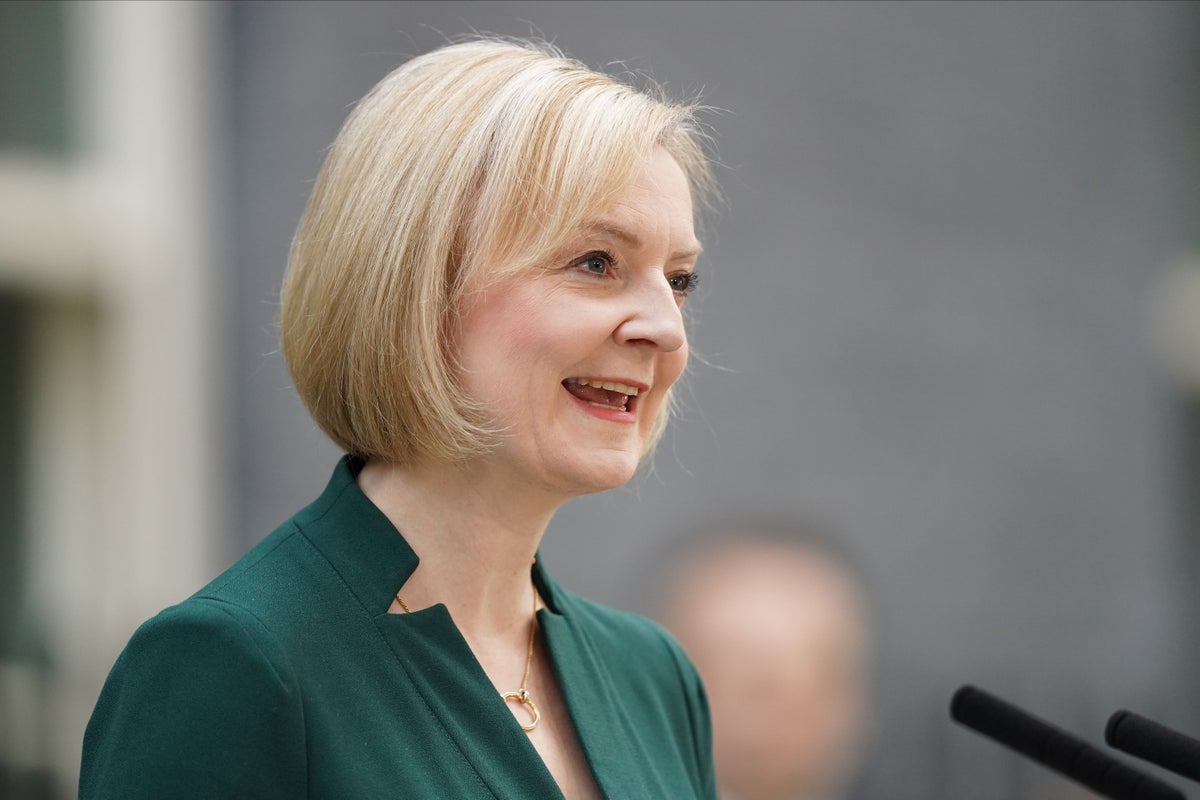
The Conservative Party’s refusal to give information relating to its leadership election process leaves it “wholly unaccountable” and with “untrammelled power” over the selection of a new Prime Minister, the High Court has been told.
News organisation Tortoise Media is attempting to bring a legal challenge against the political party after it declined to answer nine questions over the status and demographics of its members who chose Liz Truss as Tory leader last year.
Ms Truss was announced as leader on September 5, before being appointed as Prime Minister by the late Queen the following day without a general election being held.
Lawyers for the news outlet, which asked for the membership information in August 2022, said the decision of a “tiny minority” of voters was “one of the least democratic aspects” in the process of choosing the person to lead the Government.
The party was a “private members club” whose members were able to “wield huge power” over who took the top political position, a judge was told.
The Conservative Party opposes the bid to bring a legal challenge, arguing that the leadership election was “not the exercise of a public function or governmental power” and that the late Queen was ultimately responsible for appointing a new Prime Minister.
At a hearing in London on Thursday, Alan Payne KC, for Tortoise, told the court that its case touched on “fundamental matters of transparency and accountability” and related to “one of the least democratic aspects in the constitutional process in electing the Prime Minister”.
He said around 170,000 Tory members, when electing Ms Truss, had chosen “the individual who convention requires the monarch to appoint as prime minister”.
The barrister said the monarch’s role was “effectively a rubber stamp exercise”, and that the Conservative Party’s stance was “archaic” and “fails to reflect the significant developments over the last decade in the principle of accountability, transparency of government and the exercise of public powers”.
Mr Payne said the party acknowledged the public interest in the election, adding: “Nevertheless they say, in this day and age, it is right for that process to be carried out in secret by a private members club”.
For the party to have such untrammelled power is inimical to democracy and good government— Alan Payne KC, for Tortoise
In written arguments, Mr Payne said Tortoise was not challenging the outcome of the Tory leadership election or its process.
He said: “The compelling public interest in information relating to the integrity of the election process is self-evident, for example, foreign influence, checks carried out to ensure that members are eligible to vote, confirmation as to whether members under the national voting age are able to vote in the election etc.”
Mr Payne added that “the logical consequence” of the party’s approach was that it is “wholly unaccountable for the election process” in contrast to a general election and “is free to adopt any process it chooses, secure in the knowledge that it will never have to answer to the public for errors/failures/inadequacies of the process, which culminated in the appointment of the Prime Minister”.
“For the party to have such untrammelled power is inimical to democracy and good government,” he added.
Mr Payne said Tortoise had “sought to test the safeguards” of the election and applied for party memberships for an animal, a dead person and two foreign nationals in August last year.
They all received membership numbers and were invited to leadership hustings, the court was told.
The election of the leader of a private unincorporated association is not the exercise of a public function or governmental power— Kevin Brown, for the Conservative Party
Kevin Brown, representing the Conservative Party, told the hearing that Tortoise’s challenge was “bound to fail”.
He said it would be “an extraordinary set of circumstances” if the court was to intervene over the leadership election, as the party was a private members association.
“To have external control of a political party smacks to me of a dictatorship,” he said.
Mr Brown said it was important to distinguish between the party and its members in Parliament, adding that if it was decided the election could be examined by the court, it would “open the floodgates to a whole host of potential political litigation”.
In written arguments, the barrister said the court “does not have jurisdiction” to review the party’s refusal to provide the requested information and that it would “not serve any purpose” for the case to progress.
“The election of the leader of a private unincorporated association is not the exercise of a public function or governmental power,” he said, adding that it was a “purely internal act”.
“The court cannot ignore the constitutional position that the appointment of the Prime Minister is entirely within the personal prerogative powers of the monarch and the Conservative Party has no powers in this regard.”
The hearing concluded on Thursday, with Mr Justice Fordham saying he would give his ruling in writing at a later date.
Tortoise Media, which says it produces “slow news”, was co-founded by James Harding, a former BBC News director and editor of The Times.
Ms Truss, who became the shortest-serving prime minister in history after resigning after just 49 days in office, was replaced by Rishi Sunak.







